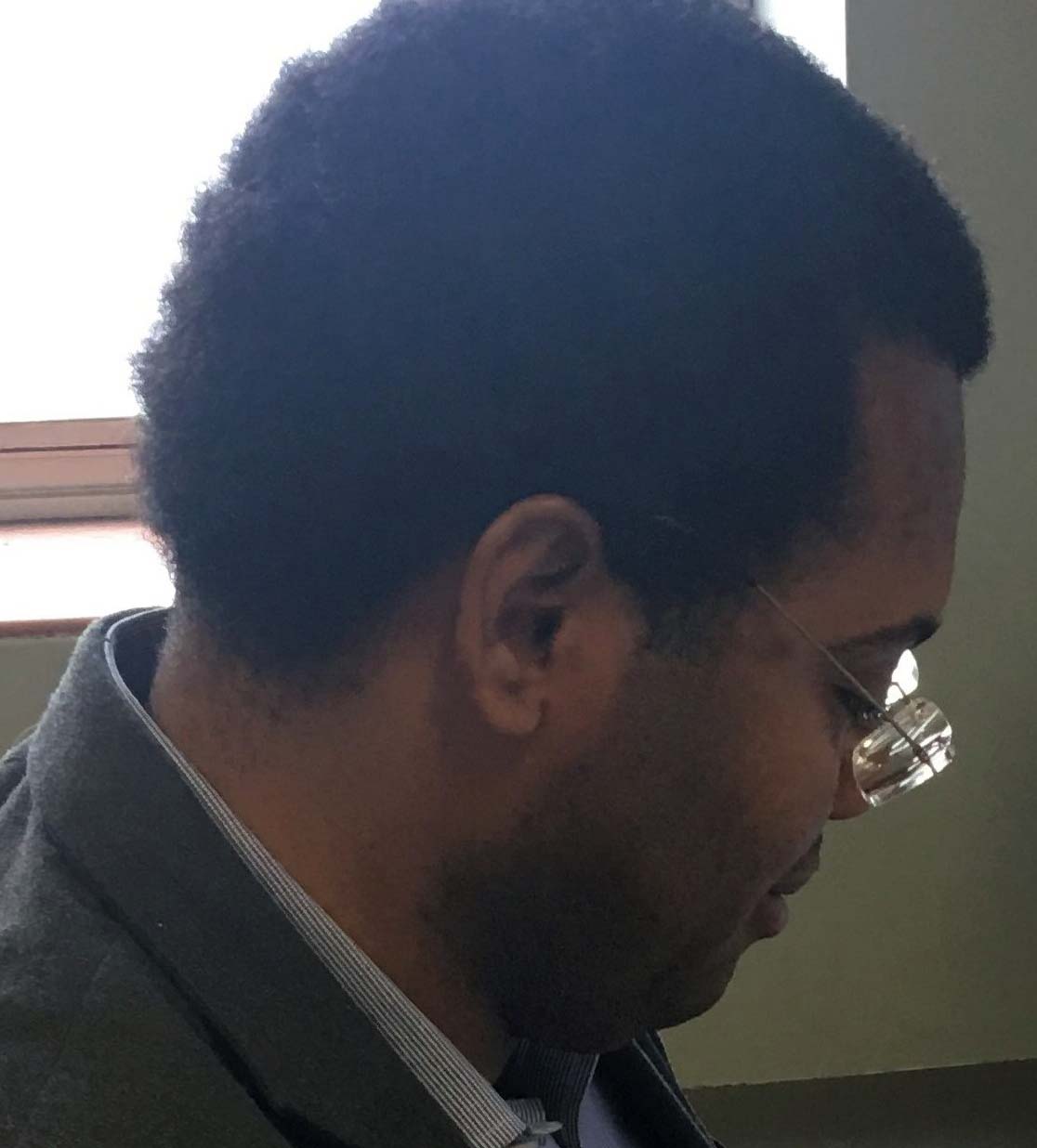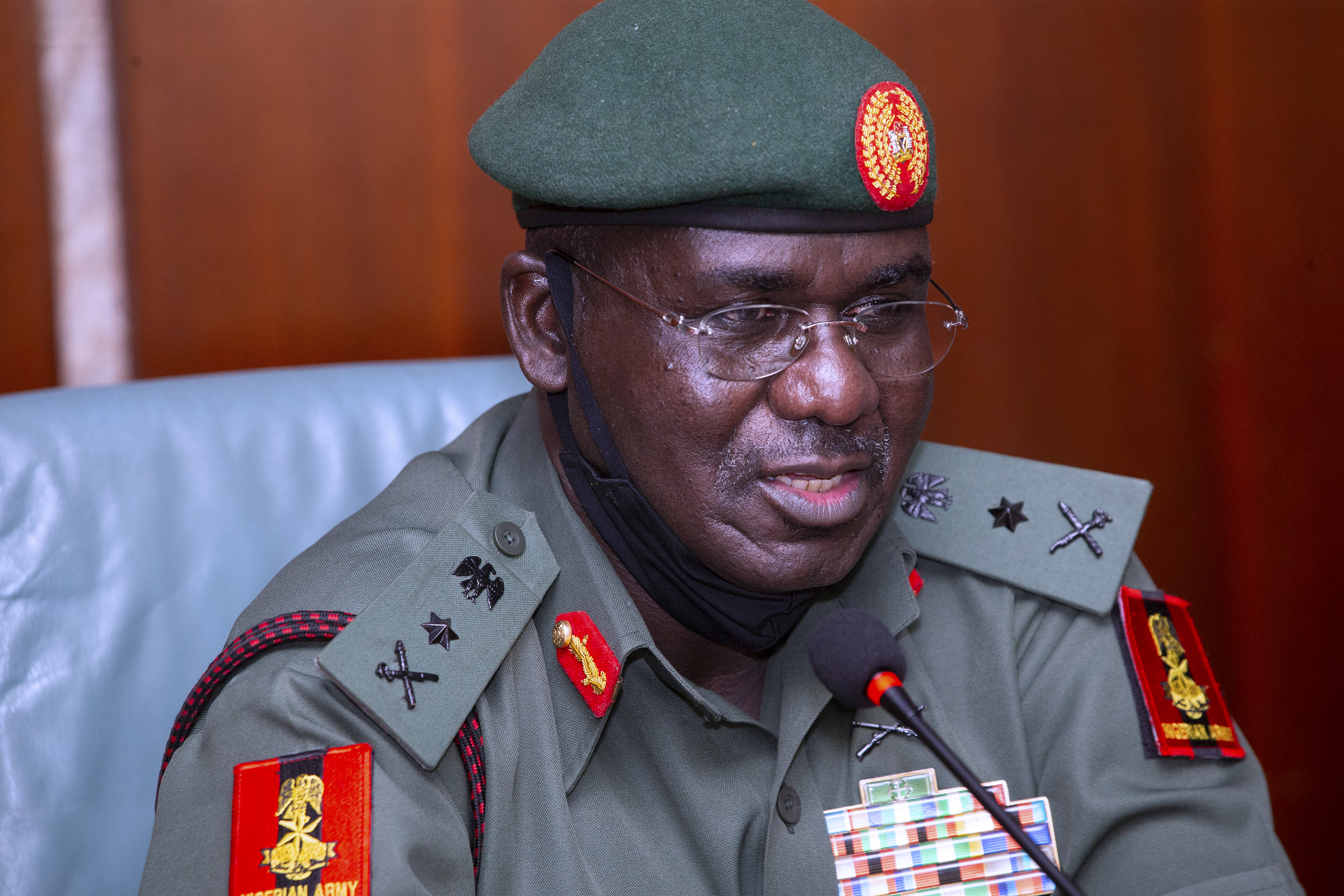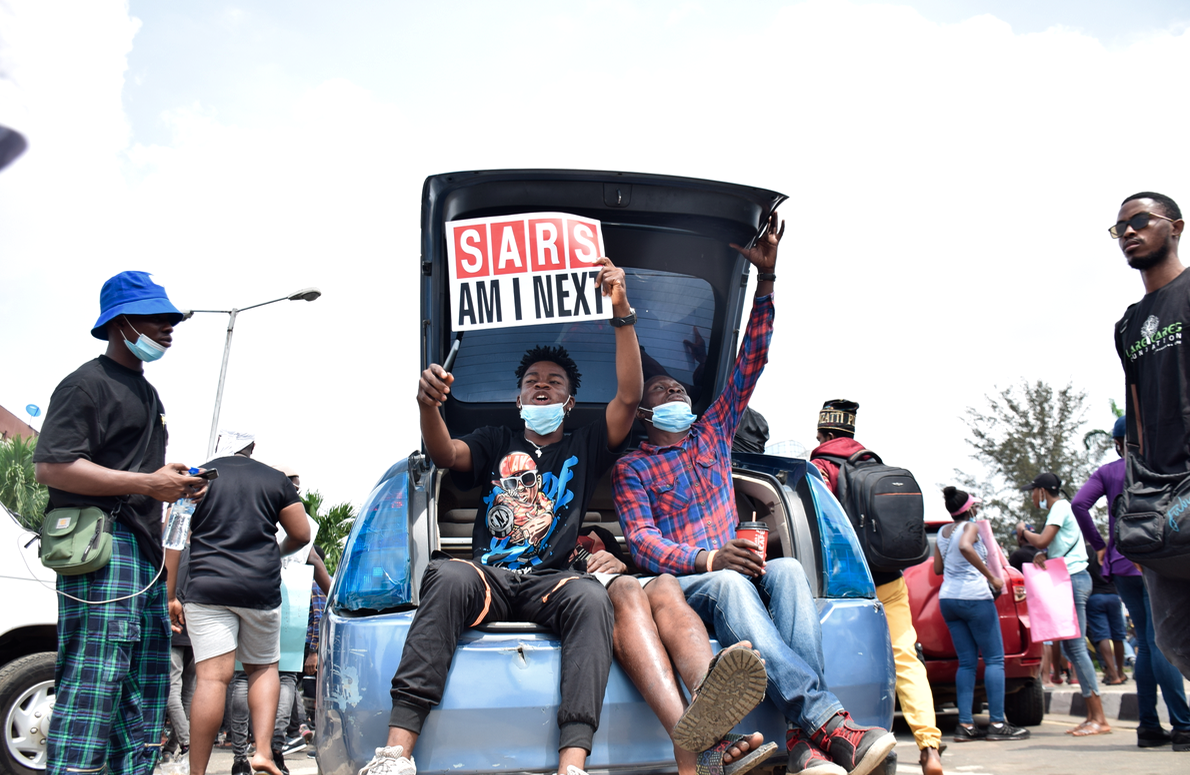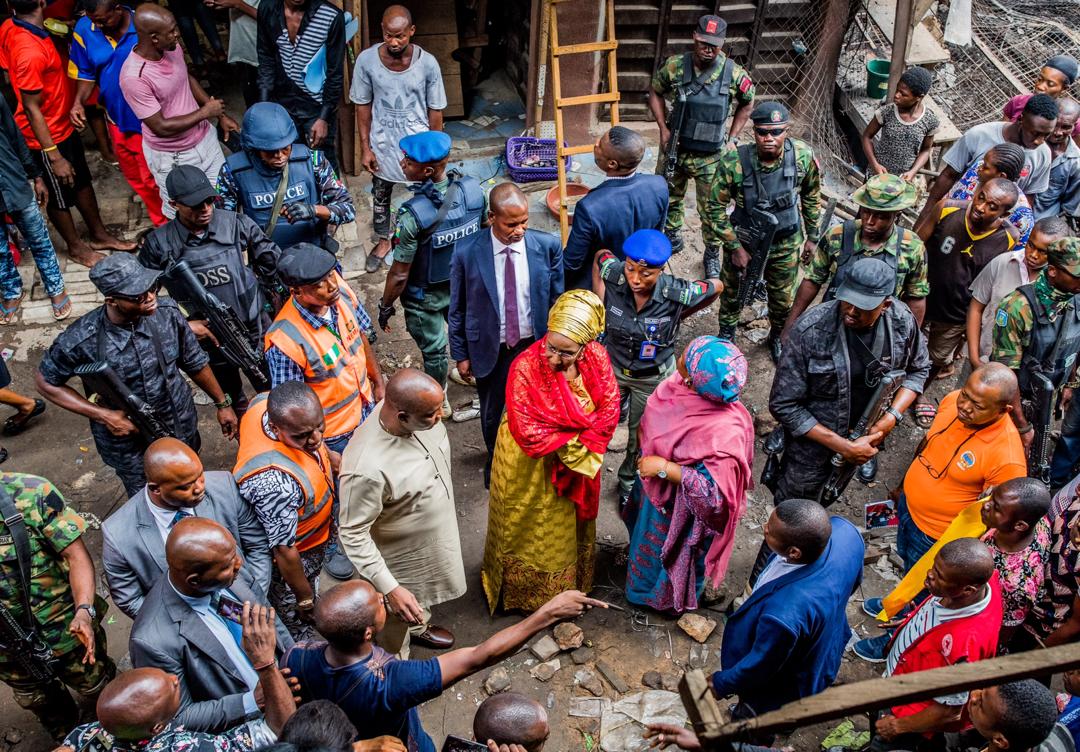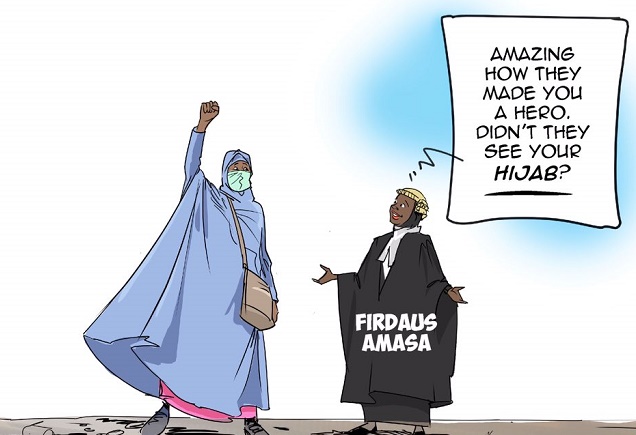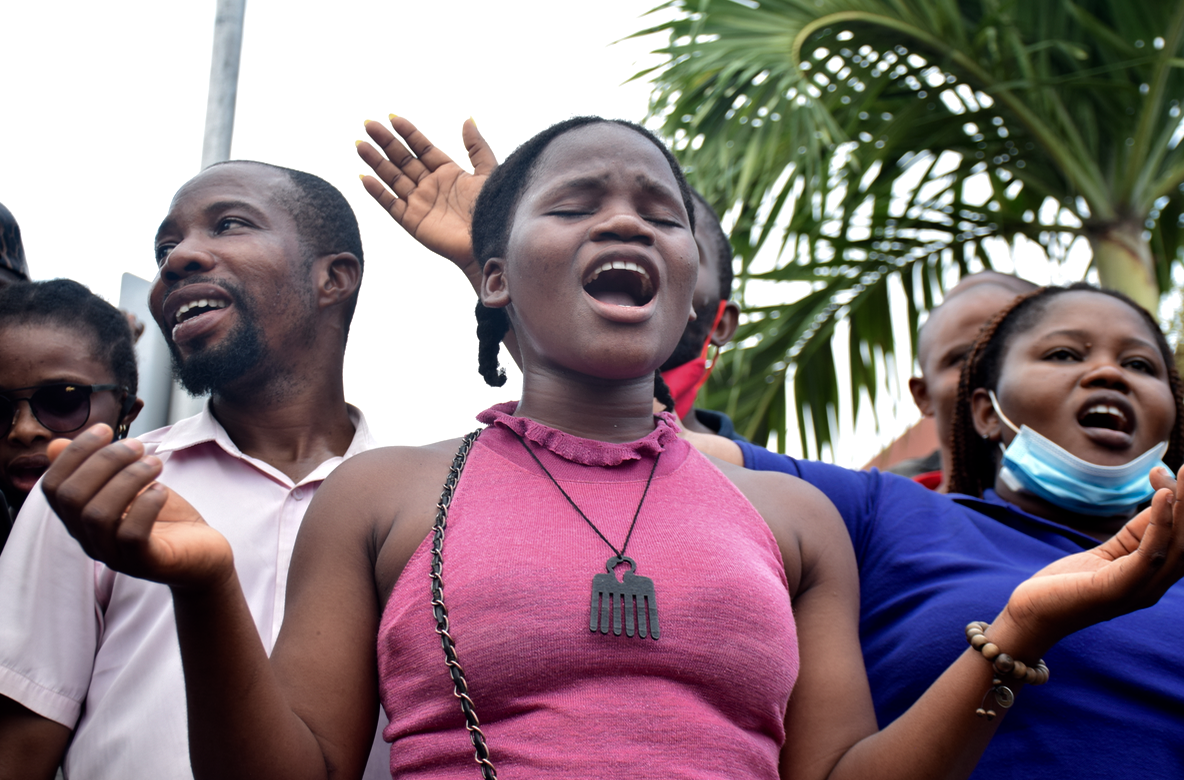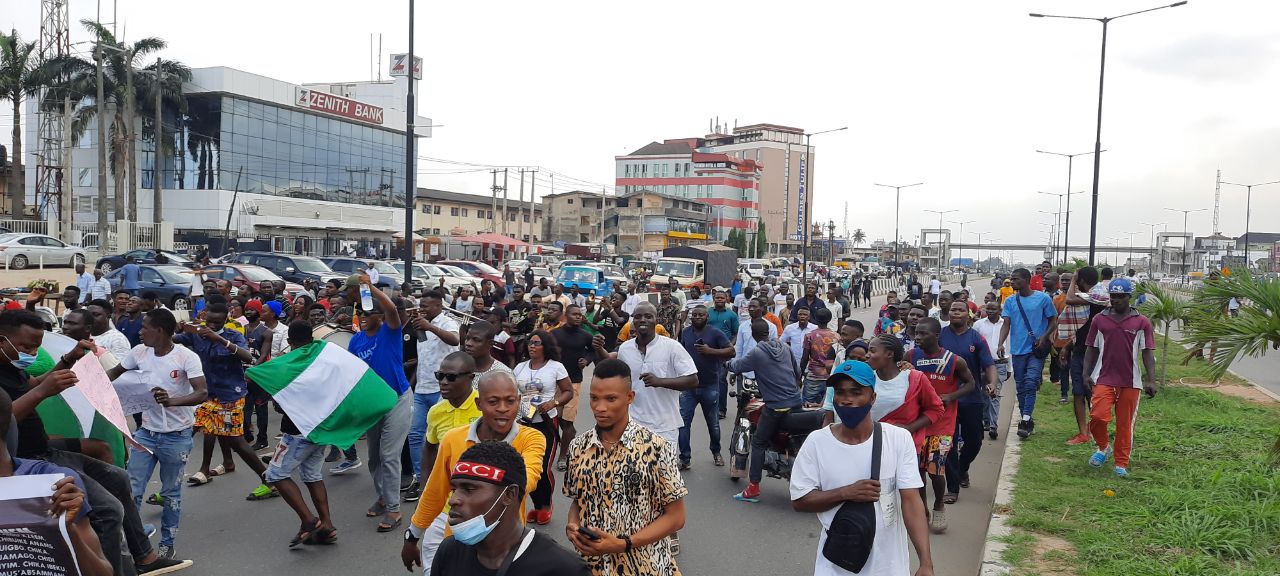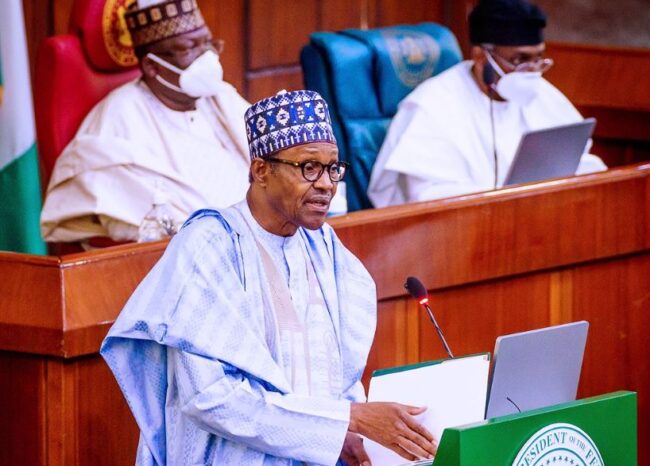Dear General Buratai:
Thank you for the permission to interview suicide bombing suspects in the Northeast in 2019. My research team and I appreciated the opportunity to understand the making of human bombs in Nigeria. I write at a time of grave national concern. As may be obvious, the widespread #EndSARS protest goes beyond police brutality. It is a labour of love for and commitment to a new Nigeria. The protest is long overdue, largely non-violent and increasingly transnational. Many never knew the day would come when Nigerians would take to the streets to demand that the police and elected leaders treat them with dignity and respect. That is where we are. If history is anything to go by, there is no going back.
The recent statement released by Colonel Sagir Musa on behalf of the Nigerian Army regarding the protests was definitely the hand of Esau but the voice of Jacob. The statement “warns all subversive elements and trouble makers to desist from such acts as it remains highly committed to defend the country and her democracy at all cost.” The statement further notes that the army “is ready to fully support the civil authority in whatever capacity to maintain law and order and deal with any situation decisively.” Did you have the opportunity to read the statement before its release? I hope there was a level of strategic thinking before that statement was published. This is the archetypal example of the kind of situation the army ought to avoid. The statement essentially declared that the army was at the service of the government to repress peaceful protesters and violate the constitutionally guaranteed right to peaceful assembly, among other rights, of Nigerian citizens.
I am alarmed at the seemingly thoughtless zeal to get the army entangled in an explicitly political matter. It is a violation of the Sandhurst formula of the political neutrality of the military. This is a political matter. Allow the politicians to deal with the situation. The declaration makes no operational or logistical sense at time in which Nigerian troops are deployed to approximately 30 of Nigeria’s 36 states, where they are engaged in counter-terrorism activities and basic policing duties. Given the fatigue, long-suffering of rank-and-file troops and increasing numbers of desertions, early retirements and resignations, why would anyone want to drag the army into an issue between the masses and the government in a democracy?
The declaration also presupposes that soldiers would obey any order to take over the streets and use force against unarmed civilians. Many of the protesters have made it clear to the police against whom the protests began that the struggle is also for the police, some of whom have been using their ridiculous poor salaries to buy uniforms. Non-commissioned soldiers are recruited from relatively deprived social classes of society. It would be class suicide for soldiers to shoot at protesters. There is no guarantee that they will. At best, issuing such an order will lead to mutiny in the army or at worst, bloodbath in Nigeria. Does the Nigerian army have sufficient ammunition to kill hundreds of thousands of Nigerian citizens? Are you willing to be the chief of army staff under whose command thousands of peaceful protesters are massacred in the full view of the world?
Advertisement
This is a watershed moment in the annals of Nigeria. Moments such as this can end in a number of ways. One way is that it strengthens Nigeria’s democratic ethos and promotes effective governance. That requires political leaders, led by President Muhammadu Buhari, to rise to the occasion and meet the yearnings and aspirations of the young people. The other way this can end is already obvious to you. I urge you, General Buratai, not to underestimate the potential of your actions or words to lead to the collapse of Nigeria.
The cyberwarfare operation, which was recently announced, betrays a level of naiveté as regards cyber knowhow. The government is dealing with young Nigerians who have mastered the art and science of computer technology. I do not think anyone believes the army has the technological expertise to match the sophistication of a handful of young boys and girls on a single street in Lagos. The landscape changed a long time ago. These young people are technologically well informed.
As one of Nigeria’s most senior military officers, I am confident that you know national interest is not always the same as the interest of a government. Governments come and go. This is a time to have a higher loyalty—to the country. This situation will end one way or the other in a political solution. Military officers who engage in brutalizing unarmed civilians often end up the sacrificial lamb. They often pay dearly for blind loyalty to persons or party rather than to country. Heads of states who issue orders to the army to deal ruthlessly with protesters rely on plausible deniability. Those in their inner circle will protect them from any form of legal jeopardy. General Buratai, if soldiers on the streets kill a single civilian, the responsibility will be on you in the medium to long term when we all begin to give account of this moment at a truth and reconciliation commission or the law courts in Nigeria or The Hague. The statement issued by Colonel Sagir Musa will become incontrovertible evidence of your culpability in civilian deaths. President Buhari will likely receive soft landing for purposes of political expediency while you are held responsible for issuing orders that led to civilian deaths. That is how situations like this usually end.
Advertisement
Finally, there is no justification in law, morality or military ethics for the army to intervene in the current situation. Nigeria is at the full stretch of its fragility. The army’s intervention can only make things worse. Using the men and women of the army who have been stretched thin to repress the rights of Nigerians to protest and possibly engage in brutalization of civilians is an insult to the memories of those who served, bled and died for Nigeria. I trust that you will make the right decision. I wish you well.
‘Tope Oriola teaches criminology and terrorism studies at the University of Alberta, Canada. He is joint editor-in-chief of African Security published by Taylor & Francis. Follow Oriola on Twitter: @topeoriola
Views expressed by contributors are strictly personal and not of TheCable.
Add a comment
